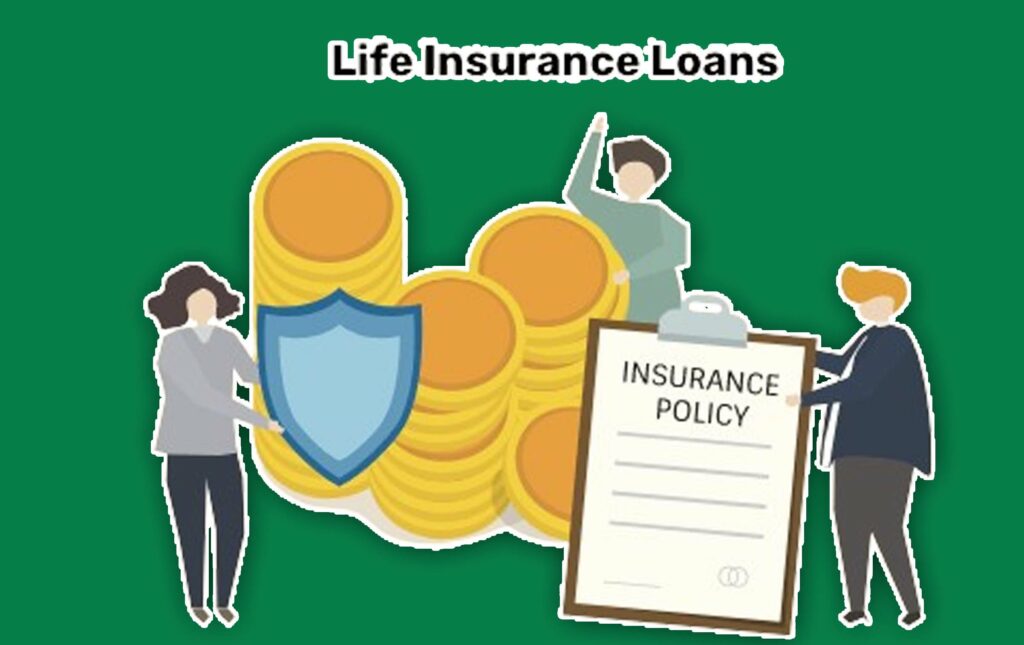Life Insurance Policy Loans – Life insurance is often viewed purely as a way to provide financial protection to your loved ones after you pass away. However, certain types of life insurance can also serve as a financial tool that supports you while you’re still alive. One of the most practical features available to policyholders with permanent life insurance is the policy loan option.

This allows you to borrow money from the cash value that has accumulated in your policy. Understanding how life insurance policy loans work, their benefits, and their potential drawbacks can help you make smarter financial decisions.
What Is a Life Insurance Policy Loan?
A life insurance policy loan is a type of borrowing that allows you to access the cash value of your permanent life insurance policy. Permanent policies such as whole life or universal life insurance build cash value over time through a portion of your premium payments. Once that cash value reaches a certain amount, you can borrow against it instead of going through traditional lenders.
Unlike bank loans or credit cards, you do not need to undergo a credit check or provide collateral to access the funds. Essentially, you are borrowing from yourself, with the insurance company using your policy’s cash value as the security for the loan. The process is straightforward and typically involves requesting a loan from your insurer, who then disburses the funds within a few days.
How a Policy Loan Works
When you take a life insurance policy loan, you are not withdrawing money from your policy’s cash value; instead, you are borrowing against it. This means your cash value remains intact and continues to grow, but the insurer charges you interest on the loan amount. The interest rate may be fixed or variable, depending on your insurer’s terms.
There is no fixed repayment schedule for a policy loan, which gives you a lot of flexibility. You can choose to repay it on your own terms or even decide not to repay it at all. However, unpaid loans and accumulated interest will reduce your policy’s death benefit and cash value over time. This means that if you pass away before repaying the loan, your beneficiaries will receive a smaller payout.
Advantages of Life Insurance Policy Loans
One of the main benefits of a life insurance policy loan is easy access to cash without the need for credit approval. This can be especially useful in emergencies, such as covering medical expenses, education costs, or temporary financial difficulties. Since you’re essentially borrowing from yourself, the funds are available quickly and without the red tape associated with traditional loans.
Another advantage is that the loan does not affect your credit score. Because it is not reported to credit bureaus, you can borrow and repay the amount as needed without worrying about your credit history. The interest rates on policy loans are also typically lower than what you would pay on credit cards or personal loans.
Additionally, as long as your policy remains active and has sufficient cash value, you can borrow multiple times during your lifetime. The flexibility of repayment is another major advantage since you can choose to repay when it’s most convenient for you rather than following a strict schedule.
Potential Drawbacks to Consider
While life insurance policy loans offer flexibility and convenience, they are not without risks. One of the biggest downsides is that unpaid loans can reduce your death benefit. If you fail to repay the borrowed amount and interest continues to accumulate, your beneficiaries could receive a significantly smaller payout when you die.
Another risk is that if the outstanding loan balance ever exceeds the cash value of your policy, the policy could lapse. This means your coverage would end, and the remaining loan balance could become taxable.
It’s also important to note that while you are not required to make payments, the interest on the loan continues to grow. Over time, that can eat into your policy’s cash value and make it difficult to restore the original amount.
When to Use a Life Insurance Policy Loan
Using a life insurance policy loan should be a strategic decision. It can be a smart financial move when you’re facing short-term financial needs and prefer to avoid high-interest loans. For instance, you might use it to fund a child’s education, cover emergency expenses, or supplement retirement income.
However, policy loans are best used as a last resort rather than a first option. You should always have a clear plan for repayment to prevent reducing the long-term value of your policy. Consulting a financial advisor before taking out a policy loan can also help you weigh the pros and cons based on your unique financial situation.
Repaying a Policy Loan
Although repayment is flexible, it is still in your best interest to repay the loan as soon as possible. Doing so restores your policy’s full cash value and ensures that your beneficiaries receive the complete death benefit. Most insurance companies allow you to make repayments in small installments or lump sums, and you can often choose how frequently to pay.
If you decide not to repay, make sure you regularly monitor your policy to ensure the loan balance does not approach the total cash value. Failure to do so could lead to policy termination or an unexpected tax liability.
Final Thoughts
Life insurance policy loans can be an effective way to access cash quickly without dealing with traditional lenders or harming your credit score. They provide financial flexibility while keeping your long-term coverage intact provided you manage the loan responsibly.
Before taking out a policy loan, it’s essential to understand the implications it can have on your cash value and death benefit. Always review your policy terms carefully and consider speaking with a financial professional. Used wisely, a life insurance policy loan can serve as a powerful financial safety net, allowing you to make the most of your policy’s value while maintaining peace of mind for the future.



